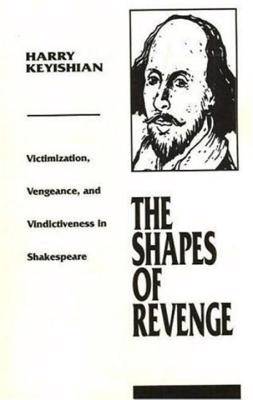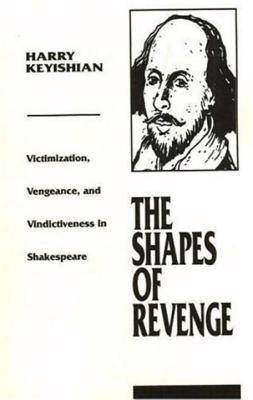
- Afhalen na 1 uur in een winkel met voorraad
- Gratis thuislevering in België vanaf € 30
- Ruim aanbod met 7 miljoen producten
- Afhalen na 1 uur in een winkel met voorraad
- Gratis thuislevering in België vanaf € 30
- Ruim aanbod met 7 miljoen producten
Zoeken
Shapes of Revenge
Victimization, Vengeance, and Vindictiveness in Shakespeare
Harry Keyishian
Paperback | Engels
€ 41,95
+ 83 punten
Omschrijving
This original approach to Shakespeare's treatment of revenge differs from earlier work on the topic by its emphasis on the psychology of revenge and, in particular, the relationship of revenge to the experience of victimization. While much critical writing on the theme has assumed that dramatic avengers reflect mental imbalance and are condemned for moral and civil offenses, Professor Keyishian treats revenge primarily as a strategy (among other strategies) by which victims of malicious injury strive to restore personal integrity and recover from feelings of powerlessness, violation, and injustice.Keyishian bases his discussion of Shakespeare's characters on Renaissance theories about the proper and beneficial role of the passions, from Aristotle and Aquinas to Francis Bacon, Niccolo Machiavelli, and others. His study presents a wide variety of examples, ranging from authentic and redemptive avengers like Macduff to purely vindictive ones like Iago. He strives to identify the specific personal, social, and metaphysical stakes each avenger has in revenge.This deeply thoughtful work makes a substantial contribution to Shakespeare studies.
Specificaties
Betrokkenen
- Auteur(s):
- Uitgeverij:
Inhoud
- Aantal bladzijden:
- 182
- Taal:
- Engels
Eigenschappen
- Productcode (EAN):
- 9781591022169
- Verschijningsdatum:
- 3/09/2003
- Uitvoering:
- Paperback
- Formaat:
- Trade paperback (VS)
- Afmetingen:
- 140 mm x 213 mm
- Gewicht:
- 226 g

Alleen bij Standaard Boekhandel
+ 83 punten op je klantenkaart van Standaard Boekhandel
Beoordelingen
We publiceren alleen reviews die voldoen aan de voorwaarden voor reviews. Bekijk onze voorwaarden voor reviews.











